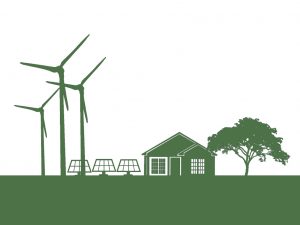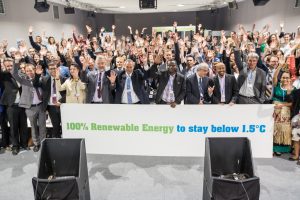Some days back, the Minister of Finance, Mrs. Kemi Adeosun, declared to the world that Nigeria is restrained from advancing into coal energy production by the ‘West’ and decried the situation as inimical to the country’s industrial growth.
Not long after however, the Minister of Environment, Mrs. Amina Mohammed, announced a measure to tackle desertification and introduce a bio-fuel alternate by massively cultivating the Jatropha Curcas, an oil rich plant used in making bio-diesel which is also highly drought and pest resistant.
These signify a microcosm of the conflicting ideologies currently bestriding the Nigerian discourse space on power; how do we meet electrification targets we had set without relying on the easy coal and fossils that built other industrialized nations but caused so much environmental damages without betraying the environmental protocols we signed?
The fact remains that Nigeria is signatory to the 2015 Paris Accord, which consents in principle not to add significantly to the earth’s carbon footprint. Also, international lending institutions seem wont to use their resources in pursuit of cleaner energy rather than invest in fossil power.
Though through one lens it seems this can be viewed as unfair to developing countries such as Nigeria in dire need of power for industrial growth, that perception gradually appears to be erroneous in the face of mounting evidence to the latter.
The impression that green energy which Nigeria has its sources in abundance cannot sustain an entire country is slowly being shattered by the monumental gains countries like Chile have made, where Bloomberg reported an average electricity price slump of 40 per cent on the back of an electricity supply contracts auctions which renewable energy producers dominated and dethroned many of the country’s incumbent energy suppliers.
While this also helped cushion a second quarter contraction in Chile’s economy, it afforded the country’s President, Michelle Bachelet a policy success to boast about.
These gains from our view, are blowing apart the idea that renewable energy cannot power an industrial nation, and reinforce our belief that Nigeria and Africa as a whole, stand to benefit the most by pivoting immediately to cleaner energy.
In a country where nearly 90 million people are estimated to not be connected to the national grid, the concern simply for more conventional power plants which have very little chance of reaching the poorest will probably not have the far reaching consequence that the government so desires.
Even the Kofi Annan-led Africa Progress Panel (APP) identifies that the conventional model for energy distribution in Africa heavily favors the rich and neglects others, leading to a situation where 621 million people of the continent live without electricity.
It is no longer news that experts have consistently advised that a deployment of a substantial number of low level off-grid renewable energy solutions stand a better chance of radically changing Nigeria’s power fortunes in a very short time, what is however news is that the government is consistently failing to smartly yield to this.
If it is commonly accepted that knowledge, not technology at hand, is power, why is it taking time for Nigeria to show an aggressive interest in the renewable energy market, even with its potentials? Why has the government appeared adrift in what it could do with RE?
Instead of an obscene cry of a deliberate arm-twist by the West, and a seeming policy flip, OGN believes Nigeria must smartly position herself to negotiate RE investments with the West and the world. She should cohere and draft a long term plan on how to integrate RE solution into the social fabric of her life because RE is no longer a side project to augment fossil power generation but now a stand-alone solution capable of taking millions out of darkness.





